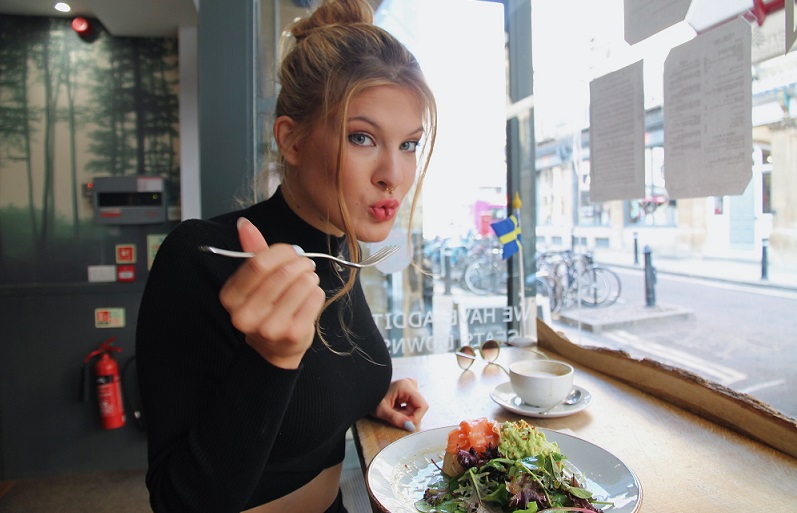For many people, salad seems to cause bloating, pain, and flatulence. The adverse symptoms of eating a healthy meal or snack are often enough to turn people away, especially if those symptoms lead to embarrassment.
Talking to many fitness and nutritional experts, their consensus is that salad or lettuce alone should not lead to gas; instead, they suggest it is the other raw vegetables and proteins you choose. However, despite the way you dress your salad, all experts agree that you can use tactics to eliminate gas and improve digestion.
How Does a Meal Cause Gas?

The type of food you consume can play a role in the amount or frequency of gas and bloating you experience. Most people will find their systems are sensitive to overly processed foods and other unhealthy meal options. However, even healthy foods, like salad and other fibrous foods, can cause discomfort and flatulence.
Primarily, the buildup of gas occurs in the intestinal tract. As food moves from your stomach and through the intestine, good bacteria within the system attempt to break down elements to make passing stool easier. These bacteria are also processing food to convert and retain energy and nutritional value from what you have eaten. The more complicated something is to digest, the harder these bacteria have to work. Unfortunately, the harder they work, the more gas they produce in the intestines, and the more gas they produce, the more bloated and uncomfortable you will feel until you can relieve that pressure in unflattering or sometimes embarrassing ways.
Why Do You Get Gas After Eating Vegetables?

People are often dumbfounded that salad and vegetables can lead to gas and bloating; after all, these food items are supposed to be healthy for you. While vegetables are healthy, they are also some of the most fibrous foods you can consume, meaning they can be incredibly challenging for good bacteria to break down. The level of difficulty only becomes more complicated if your gut microbiome is out of balance.
Dysbiosis is the imbalance of your guts microbiome, specifically where bad bacteria outnumber the good. In such circumstances, the good bacteria are working overtime to process food in the digestive tract, meaning they are producing more gas than necessary. If you are experiencing dysbiosis, consuming probiotics and maintaining a healthy and balanced diet should help curb some of your salad gas issues.
[insert page='Offer' display='content']
What You Can Do To Prevent Gas and Improve Digestion

Preventing salad gas comes from a combination of tactics: hydration, chewing, posture, and probiotics. People often underestimate the power of a glass of water. Most adults are dehydrated. Your digestive system requires lubrication to expel waste successfully. The average person needs to drink approximately half their body weight in ounces to maintain healthy lubrication levels, especially for the digestion of fibrous vegetables and foods.
Most people also take bites that are too large, failing to chew enough. The larger chunks of food cannot break down all the way in the stomach, resulting in more work for the good bacteria in the intestines and a greater likelihood of gas. Additionally, people in a rush tend to stand or move while eating, which can interrupt proper digestion.
Finally, providing your body with enough good bacteria can lessen the likelihood of gas and bloat. Foods like sauerkraut, kombucha, kefir, and lacto-fermented pickles are excellent sources of good bacteria.
If you are still having trouble with excess gas and bloat, you might want to talk with your doctor or a nutritionist to identify food sensitivities. Do you have any suggestions? Leave a comment below, and keep the conversation going.

